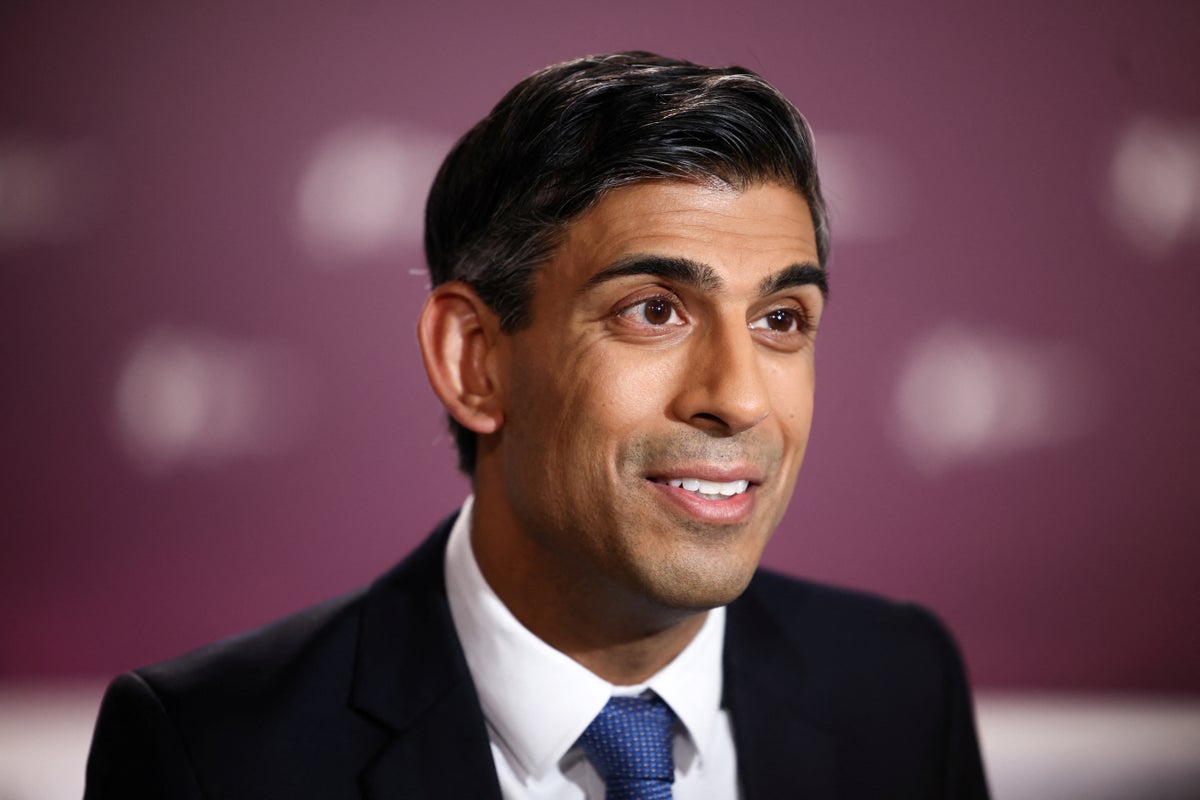
Rishi Sunak is "confident" the NHS has the funding it needs despite accusations from senior doctors his government is in denial about the scale of the crisis in the health service.
No 10 admitted that services were suffering an “unprecedented challenge” this winter and that some patients were finding it "very difficult" to access care.
But Downing Street said the government had been upfront with the public that this would be an extremely challenging few months for the NHS.
Critics said claims the NHS had enough resources were “an insult to all those suffering in hospital corridors or in the back of ambulances because the Government refused to act sooner.”
The Prime Minister's official spokesman said: "I think we are confident we are providing the NHS with the funding it needs - and as we did throughout the pandemic - to deal with these issues.
"I think we have been upfront with the public long in advance of this winter that because of the pandemic and the pressures it's placed in the backlog of cases that this would be an extremely challenging winter, and that is what we are seeing."
The hangover from Covid was among the largest causes of the current pressures on the NHS, he said, although he also pointed to delayed discharges from hospitals because of a lack of social care beds.
That was an issue the government had "recognised and have been seeking to address this year with additional funding into the system".
Asked if the Prime Minister thought the NHS was in crisis, his spokesman said: "This is certainly an unprecedented challenge for the NHS brought about, as I say, by a number of factors."
NHS leaders have urged the Government to reopen talks with unions over pay, saying the "last thing" the NHS needs is four days of strikes in January.
The Royal College of Emergency Medicine warns that between 300 and 500 people a week are dying as a result of delays and problems with urgent and emergency care, although NHS England has said it does not recognise these numbers.
Dr Ian Higginson, the vice president of the college, accused ministers of being in denial over the scale of the problem. He told Times Radio there has been a “remarkable lack of what I would call meaningful engagement for quite some time from many political leaders”. He added: “There seems to be almost a battle of machismo and denial going on. And this is a real problem for the NHS. [If we get] ourselves into a situation where the staff are trying to say how it is on the frontline, and the organisations and political leaders who have the power and the ability to make change are simply trying to push back and for whatever motivation not accept that, there’s a real problem. We all need to work together on this, and I don’t really see evidence of that.”
In a joint statement, the president of the Society for Acute Medicine, Dr Tim Cooksley, and the president of the Royal College of Physicians Edinburgh, Professor Andrew Elder, said they had “ never been more concerned about standards of acute medical care across hospitals in the UK than we are now”.
Matthew Taylor, chief executive of the NHS Confederation, warned the current situation was “very difficult”, with Trusts declaring ‘critical incidents’.
"We are not able to provide the level of service we want to provide,” he said. "The simple reality here is that the health service is caught between the fact that it has limited capacity, particularly when it comes to workforce - 130,000 vacancies - and a level of demand that it is difficult to meet in ordinary times.”
He added: “It is really important that, as ministers return to their desks, they consider ways of reopening negotiations with the trade unions - because four days of strikes on top of the situation we’re in now is the last thing we need."
Ambulance staff are set to walk out on January 11 and 23 in a dispute over pay, while nursing staff will strike for two consecutive days on January 18 and 19.
Mr Taylor also warned that over the longer term the NHS needed more money. Sally Warren, director of policy at the King’s Fund think tank, said tens of thousands of people are waiting for social care assessments, which has an impact on hospitals.
She told BBC Radio 4’s Today programme that "while they’re waiting, their condition might deteriorate and they may end up in the NHS system, be that with their GP, with NHS 111, or at the hospital front door".
Richard Webber, spokesman for the College of Paramedics, said hospitals are "full of patients who should be elsewhere".
Lib Dem health spokesperson Daisy Cooper said the iea the NHS had enough funding was an insult and the prime minister should apologise to patients. “This is an insult to all those suffering in hospital corridors or in the back of ambulances because the Government refused to act sooner,” she said. “Rishi Sunak should apologise to patients, nurses and paramedics for his Government’s failure on the NHS. Years of underinvestment and a lack of recruitment has resulted in today’s crisis. Downing Street should own up and call today’s situation a national crisis. It is time Parliament is recalled so MPs can pass an emergency plan to save our NHS.”







